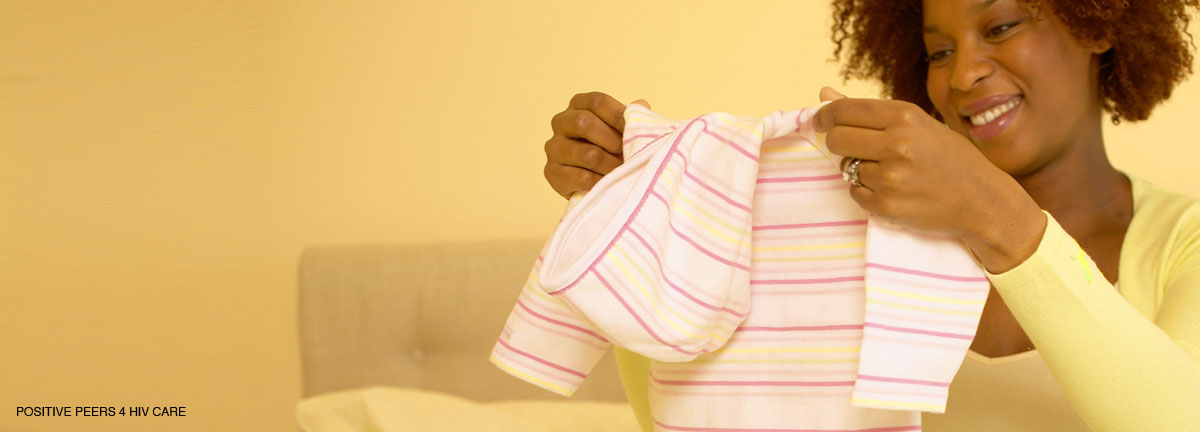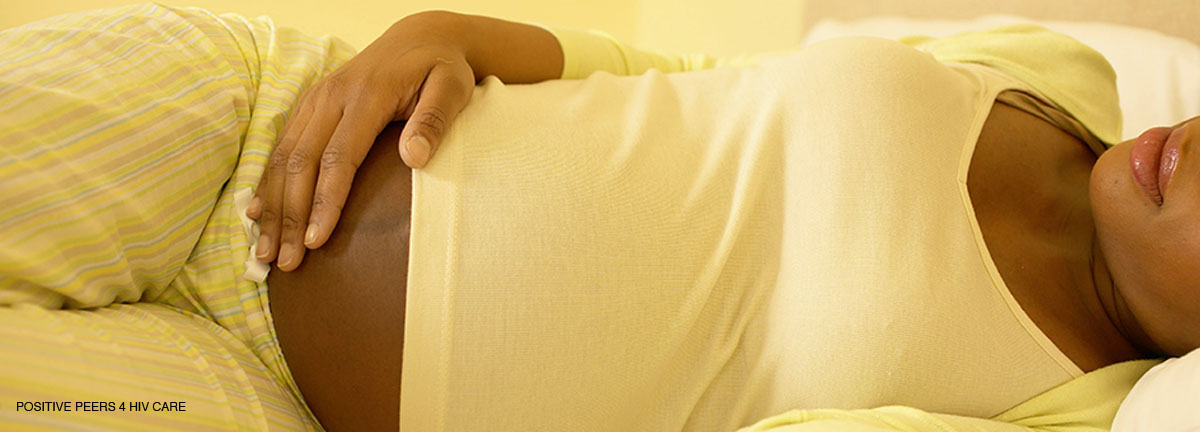Yes!
Women with HIV can have babies, and men with HIV can get women pregnant.

By: Ann K. Avery, MD, Infectious Disease Physician at MetroHealth Medical Center
The biggest challenge is preventing a pregnant mom from passing HIV to her baby. Fortunately, modern anti-retroviral drugs can substantially reduce the risk of a mother infecting her child.
In fact, parents living with HIV can even safely Breast/Chestfeed their babies. In January 2023, the Perinatal HIV Clinical Guidelines were rigorously updated to encourage breastfeeding among women living with HIV. Learn more about these updates and tips to help you do so safely.
Having a baby when you’re HIV-positive is a medically complex challenge, but far from impossible. You should consult with your doctors every step of the way to ensure your own health and the health of your newborn baby.
Pregnancy and HIV

Women who are HIV-positive need to stay on a regimen of HIV meds to keep their viral load to an undetectable level. At this level, it’s extremely difficult for HIV to find its way into the baby’s body.
There’s still a tiny chance that HIV can be transmitted, but doctors can plan for that by giving newborn babies a regimen of HIV meds to prevent an infection. You’ll also get an IV drip of antiretroviral medicine during labor and delivery (usually for 4 hours), so it’s important to come to the hospital in early stages of labor.
So, if you are a pregnant woman and you’re already on HIV meds, that means you are already working with a doctor and staying healthy. That’s the right way to start!
Keep in mind, your body will undergo substantial hormonal changes during a pregnancy and that this may affect which medications you take. There’s a fair chance you’ll end up taking different meds during your pregnancy.
HIV status and family planning
Come join our private, stigma-free, supportive community.
Health management tools with medication & appointment reminders.
Social networking in a community conversation & private chats.
This happens quite a bit: One-half of a couple is HIV-positive and the other one is HIV-negative. If they try to conceive their baby via unprotected sex, there’s always the risk of the HIV-negative partner becoming infected.
Fortunately, doctors and researchers have figured out how to help couples conceive and bring a baby to term while dramatically reducing the risk of transmitting HIV to the uninfected partner — or the baby.
If the man is HIV-negative and the woman is positive, this can be done by finding a way to insert the man’s semen into the woman’s uterus while she is ovulating. There’s a fairly “low-tech” method using a syringe (minus the needle) containing the man’s semen. People can do this at home, and it’s safe. Furthermore, it’s impossible for the woman’s HIV to be transmitted to her partner this way.
A more “high-tech” option is to work with a fertility clinic to either insert the semen or to insert a fertilized egg. This may be the better choice if either the man or the woman has fertility problems.
Finally, the man could take PrEP, a once-daily pill, which makes it nearly impossible for him to contract HIV while trying to get his partner pregnant.
Things get a little more complicated if the man is HIV-positive and the woman is HIV-negative — because his seminal fluid will contain the virus and the virus will come in contact with mucous membranes in the woman’s body where it can get into the bloodstream.
But it is possible to have the man take HIV meds to get his viral countdown to undetectable levels, which is a preventative measure. The woman could also take PrEP, a once-daily pill that makes it extremely difficult for HIV to spread in the bloodstream. This lowers transmission risk to almost zero!
Another prevention method while trying to get pregnant is to have unprotected (condomless) sex only when the woman is ovulating, which can reduce the likelihood of the virus being passed from the man to the woman. Especially if the man is undetectable.
Preconception care

You have to talk all this over with your doctor in depth and get firm guidance on exactly what to do.
You and your partner need a clear understanding of the risks so you can make educated decisions. If only one of you is HIV-positive, you need to work with your doctor to get your viral load to undetectable levels, and the HIV-negative partner may want to take PrEP.
Preconception care means you’re getting your bodies in optimum condition prevent HIV transmission between partners and to conceive a healthy baby who arrives free of the virus.
Positive Peers is made possible through a U.S. Department of Health and Human Services Health Resources and Services Administration, HIV/AIDS Bureau Special Projects of National Significance (SPNS) Grant to The MetroHealth System. Click here for more information about the SPNS grant initiative.
Positive Peers is a private app for young people living with HIV. Learn how you can earn rewards for your participation.
